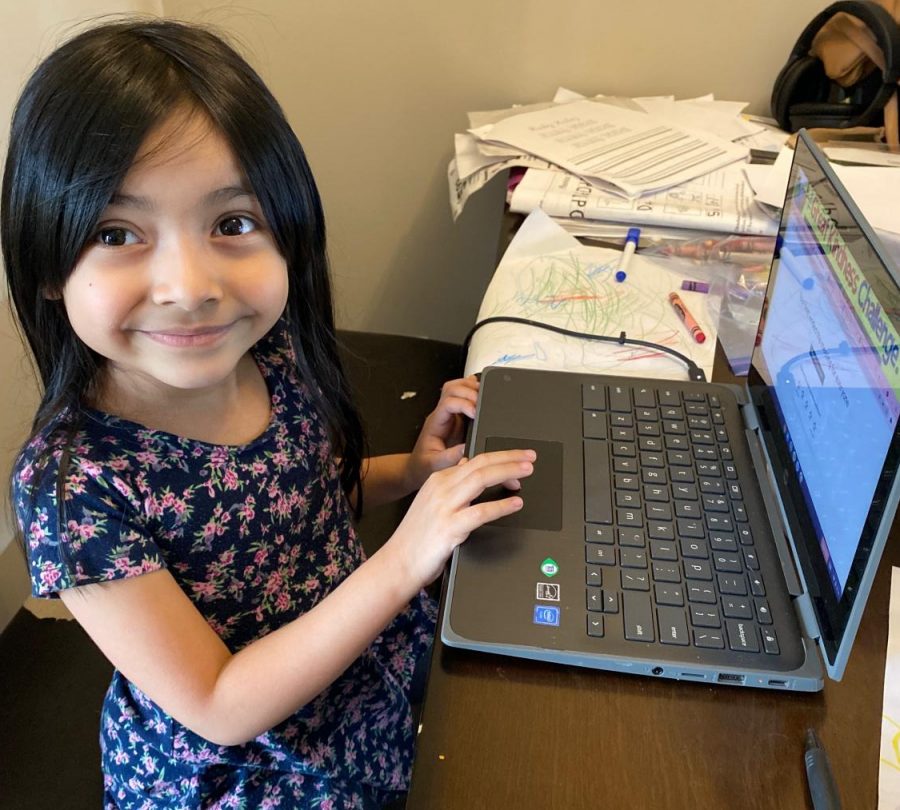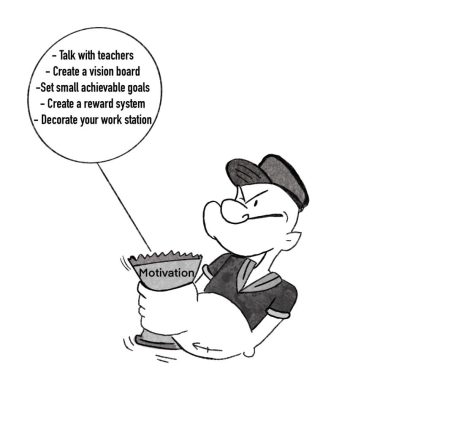Kindergartner Teaches Me a Lesson on Socializing
Photo by Stephanie Xiloj
My little sister Ruby during one of her online classes
Last week as I was sitting at the dining table, I heard my 6-year-old sister shout from the next room “Let’s play tag!” Who was she talking to, I thought? Her classmates?
I thought to myself: How in the world do you play tag on Google Meets? To my surprise her classmates responded with delight.
With curiosity, I watched as Ruby unmuted herself and declared “I’m it.” She ran around the living room, returned to the computer and touched the screen. “Abigail, you’re it,” she announced. Without argument, the classmate simply accepted she was it, ran around her living room and told another student that they were it.
I was amused yet conflicted. It was natural that in a game of tag, one would feel upset if someone claimed you were “it” when you hadn’t been tagged. When I had played tag in person, there was always an instance when someone insisted the person who was “it” had not properly tagged them. But apparently that isn’t the case with online tag.
It made me think that over the past year, as young children have been deprived from physical interaction with their classmates, they’ve become flexible enough to bend the rules in order to have fun. Similarly, when playing rock paper scissors, Ruby and her friend were very sweet and understanding. Although they weren’t in sync with each other and one landed their “shot” first, they simply went with it.
Although I was amused, I was also anxious. How could she turn on her camera, unmute and have fun with such liberty? Wouldn’t it be embarrassing if she lagged or lost the Zoom connection and had to be let back in? Despite my fears, nothing held her down, not the fear of lagging nor the fear of freezing. It was like she lived in a different world, and I was in awe of her.
I’m an anxious person who tends to overcomplicate situations, so my experience on Zoom could never be as carefree as my sister’s. Seeing her so free, made me want to have the same carefree mindset that children have.
Her carefree actions may be due to her young age or simply her personality. People tend to become more self-conscious as they grow up and then, in turn, become inhibited, so maybe she is like this only for the moment. Or, it might also be her personality: She is always outspoken, and she has had some practice with audiences over the past couple of years, from appearing on my mother’s weekly radio show.
For the past eight years, my mother has been a radio host for a Pentecostal Christian radio station, and for the past five years, every Saturday at 5:00 p.m., she hosts a children’s program.
My mom started the program centered on my other sister, but as she grew out of it, Ruby grew into it. She will actively pray for prisoners or for the sick, and sing “El Pattito Juan” or “El Ratón Samaritano.” As a result, she has became accustomed to speaking to an “invisible” crowd and never shies away from expressing herself, no matter how unnecessary or embarrassing it may seem to the rest of us.
But no question, her confidence also partly results from spending the past year interacting through Google Meets. As a kindergartener, she has spent maybe two years in a normal classroom setting. Additionally, while we transitioned to online learning last March, she didn’t start school until the fall. As someone who hasn’t spent years in a normal classroom, where rules and behaviors are ingrained over time, children may take this strange way of learning as “normal,” because for them, it is!
Whatever the reason for Ruby’s carefree attitude online, she inspires me to step out of my comfort zone. Recently, I unmuted myself for the first time during a seminar and started turning my camera on for some classes. I’m actively trying to change, and to whoever may be feeling nervous or anxious like me, I suggest you take little steps and just know you’re not alone.





